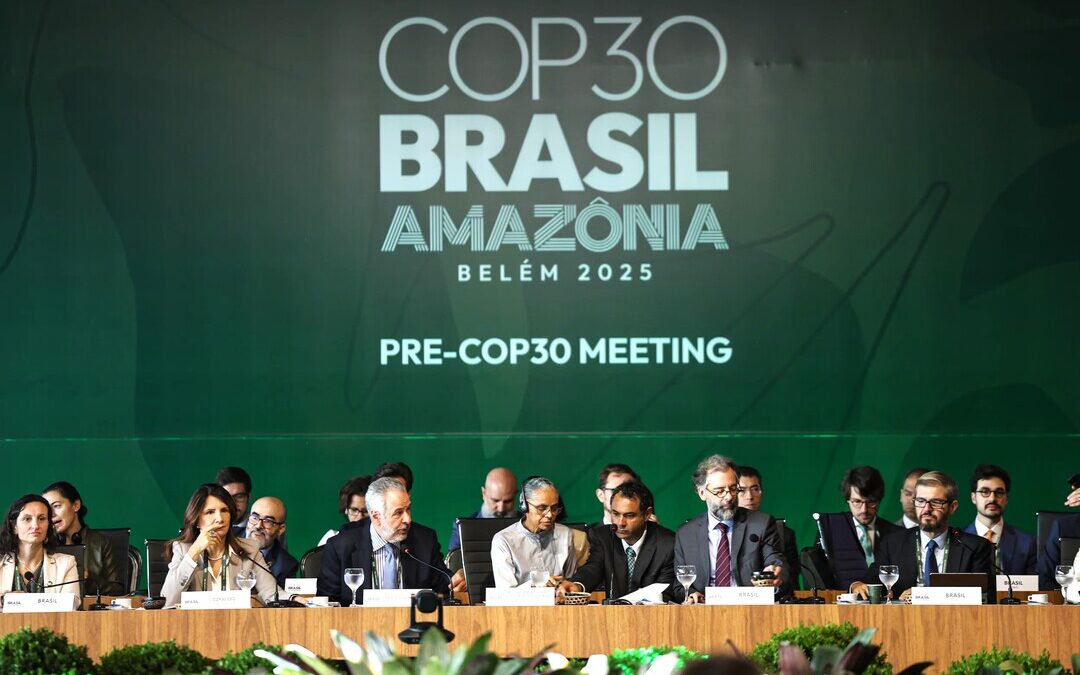Rich Nations to Face Legal Reckoning Over Climate Finance at COP30
Developing nations demand stronger climate finance commitments at COP30 as report warns of widening global equity and funding gaps.
The world’s richest countries are failing to meet their climate finance obligations, leaving developing nations increasingly vulnerable to escalating disasters, according to the “Annual Policy Document 2025.”
The report calls for legally binding measures and a sweeping reform of the global finance system to ensure equity and accountability in climate action.
Legal Duty to Fund Climate Action
The document, issued by the Climate Action Network, follows the International Court of Justice’s historic advisory opinion this year, which declared that countries are legally bound to prevent climate harm.
The opinion established that climate finance and emission reductions are obligations, not voluntary commitments, under international law.
The report warns that if COP30 in Belém, Brazil, fails to align with this ruling, it could “signal the inability of the UNFCCC process to manage the core drivers of climate injustice.”
It also calls on states to embed principles of equity and accountability in every aspect of the energy transition.
Despite repeated pledges, developed countries have yet to deliver the $100 billion a year they promised under the Paris Agreement. Public faith in international institutions, the report says, is collapsing because of these unfulfilled commitments.
New Financing Goals and Gaps
The report estimates that developing nations will need between $215 billion and $387 billion annually to adapt to worsening climate impacts — nearly 10 times current flows.
Yet, adaptation efforts receive only 33 percent of total climate finance, while mitigation projects attract 59 percent.
CAN proposes a new adaptation finance commitment at COP30 to ensure at least $300 billion in predictable, public grant-based funding each year.
It also calls for replenishing the Adaptation Fund, which has missed its modest $300 million target for two consecutive years.
The document warns that recent cuts to overseas development assistance could reduce available adaptation finance by another $28 billion in 2025.
To close the widening ambition gap, CAN supports the Group of 77’s demand to strengthen Article 9.1 of the Paris Agreement, reinforcing developed countries’ legal obligation to provide public climate finance.
The organization also recommends tripling the United Nations Framework Convention on Climate Change climate fund outflows by 2030 and setting clearer milestones for the New Collective Quantified Goal, which currently targets $300 billion a year by 2035.
Launching the Belém Action Mechanism
At the heart of the 2025 policy agenda is a call to establish the Belém Action Mechanism — a new UNFCCC framework to unify fragmented global Just Transition efforts.
The mechanism would coordinate national and local transitions, ensure people-centered policies, and mobilize non-debt-creating finance for developing nations.
BAM would operate through three main pillars:
- A coordination entity to align Just Transition efforts with the Paris Agreement.
- A knowledge hub to share best practices and policy innovation.
- A support platform to facilitate finance and technology transfer, particularly for the Global South.
The mechanism, to be launched at COP30 and implemented by COP32, aims to anchor human rights, workers’ protections, and Indigenous participation in climate transition policies.
“A just transition is no longer a side note; it is the true measure of seriousness,” the report states.
CAN further urges countries to integrate Just Transition principles into their national climate legislation, such as Nationally Determined Contributions and long-term strategies.
These principles include the right to free, prior and informed consent, gender equality, decent work and universal social protection.
Adapting to a Changing Climate
The report paints a stark picture of climate-driven displacement and destruction. In 2024, floods displaced 600,000 people in Brazil, 7.8 million in Africa and 13 million in the Philippines due to typhoons.
CAN describes adaptation as a human right, one tied to survival, security and sustainable development.
It calls for the adoption of up to 100 Global Goal on Adaptation indicators at COP30 to measure progress and ensure accountability. These should include clear “means of implementation” metrics that track finance, technology transfer and capacity-building from developed to developing nations.
The report also urges countries to finalize the Baku Adaptation Roadmap, intended to link adaptation actions with long-term resilience planning.
It recommends a clear mandate to strengthen local implementation capacities, particularly through Locally Led Adaptation programs in countries such as Bangladesh, Nepal and Kenya.
Scaling Up the Loss and Damage Fund
Despite the establishment of the Loss and Damage Fund in 2022, the report says financing remains “woefully inadequate.” Only $250 million has been pledged to launch the fund, while developing countries face losses running into hundreds of billions each year.
CAN demands a political signal at COP30 that the fund’s resource mobilization strategy will match the estimated $400 billion annual need.
The organization calls for a permanent COP agenda item on Loss and Damage to maintain accountability, a comprehensive “gap report” on financing needs and a framework for direct community access to funds.
It also stresses that the fund must uphold human rights safeguards, prioritize small grants for vulnerable communities and align with the ICJ’s advisory opinion.
A Call for Just and Inclusive Multilateralism
The document concludes that restoring trust in global climate governance requires protecting civic freedoms, addressing conflicts of interest in UNFCCC processes and ensuring inclusive participation.
It warns that without a credible, justice-driven outcome at COP30, the multilateral system risks “becoming irrelevant to the lived realities of a planet in distress.”
“Climate action must work for people, not against them,” CAN writes, framing the Belém summit as a defining moment for the legitimacy of international cooperation.
Also Read:
C2ES Urges $1.3 Trillion Climate Finance Push Ahead of COP30 in Belém
Nirmal Menon
Related posts

Subscribe
Error: Contact form not found.


